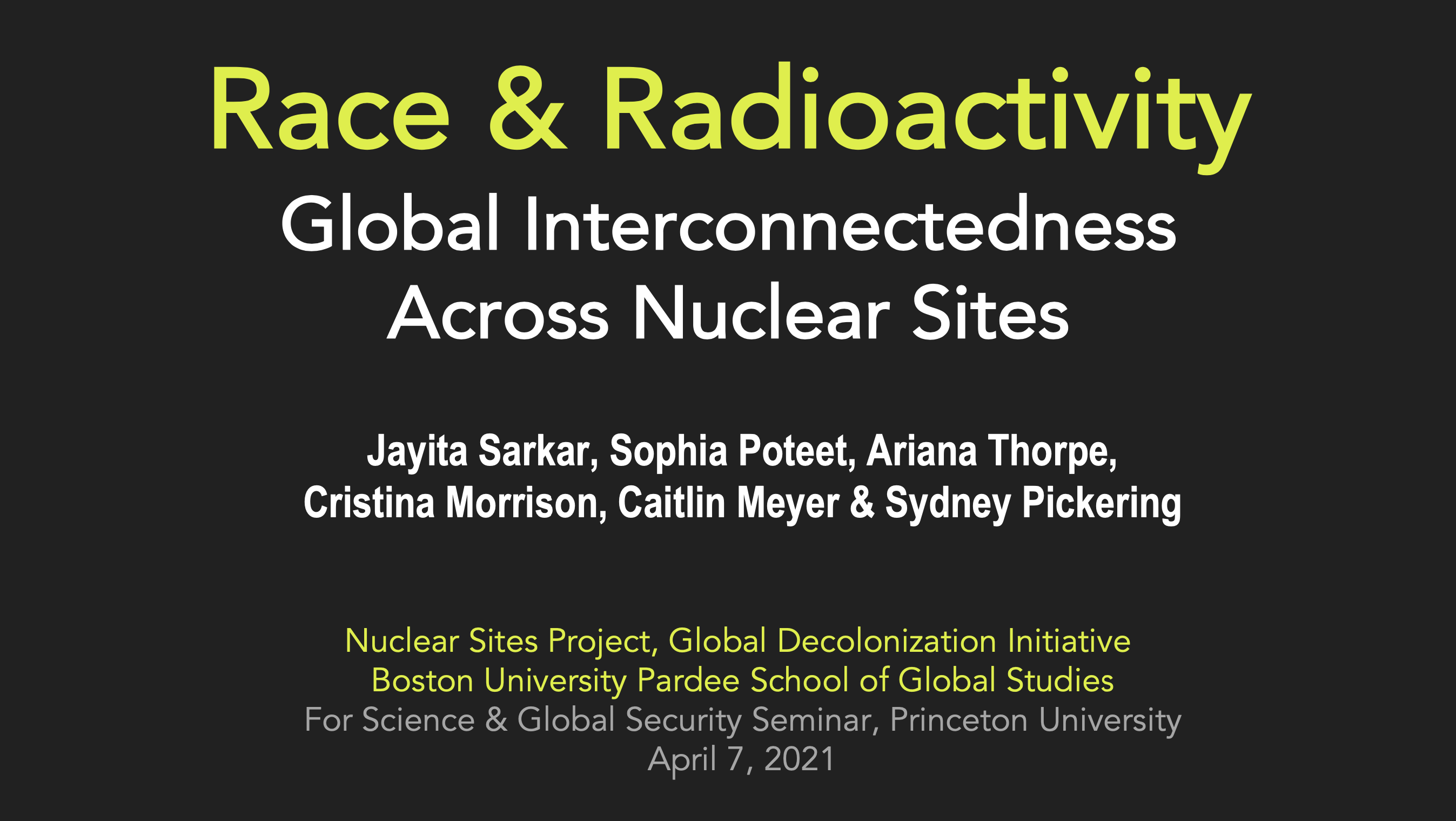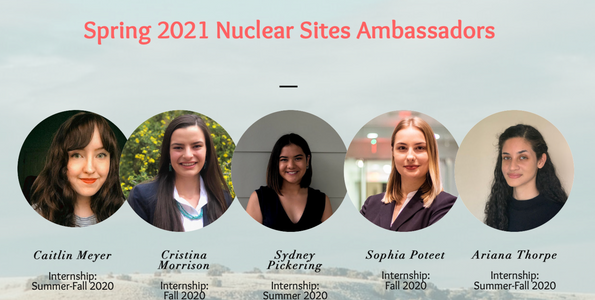Sarkar & Pardee School Students Present Research at Princeton Seminar

Professor Jayita Sarkar, Assistant Professor of International Relations at the Frederick S. Pardee School of Global Studies at Boston University, and five undergraduate students from the Pardee School presented their research conducted at Global Decolonization Initiative’s (GloDec) Nuclear Sites Project during Princeton’s Science and Global Security Seminar (SGS) on April 7, 2021. Professor Sarkar, GloDec’s director, led the student group.
Their presentation, titled “Race and Radioactivity: Global Interconnectedness Across Nuclear Sites,” examined the processes through which infrastructures of nuclear technologies have systematically disenfranchised indigenous communities and communities of color in various parts of the world.
The abstract is below:
Nuclear weapons, energy, uranium-mining and accidents are rarely analyzed together in social science scholarship. While nuclear weapons are studied through the lens of deterrence and military security, nuclear energy is often viewed through energy security, and uranium mining relegated to labor and land rights. Yet, the sites of nuclear weapons tests, nuclear reactors and uranium mining have one theme in common, namely, systematic disenfranchisement of individuals and communities of color, who inhabit and work on those lands. The Nuclear Sites Project at Boston University, housed at the Global Decolonization Initiative, investigates how infrastructures of nuclear technologies have systematically disenfranchised indigenous communities and communities of color in the United States, Namibia, South Africa, Ukraine, Iraq and Russia, to name a few. The project foregrounds the global interconnectedness of race and radioactivity and underlines how decolonization continues to be an ongoing process across these sites.
The Pardee School undergraduate students, Sophia Poteet (’22), Ariana Thorpe (’22), Cristina Morrison (’22), Cait Meyer (’22), and Sydney Pickering (’22), developed their research as independent case studies during their research internships at GloDec Nuclear Sites in summer and fall 2021.
 All five students are Nuclear Sites Ambassadors in spring 2021, representing GloDec at informal meetings with Nuclear Princeton students, during which they have met Principan Man Ian Zabarte and will meet former NRC chairman Allison MacFarlane.
All five students are Nuclear Sites Ambassadors in spring 2021, representing GloDec at informal meetings with Nuclear Princeton students, during which they have met Principan Man Ian Zabarte and will meet former NRC chairman Allison MacFarlane.
GloDec’s Nuclear Sites Project is committed to educating the next generation about the interconnectedness of systemic disenfranchisement in sites of nuclear infrastructures across the world. The Nuclear Sites Project is developing a database of in-depth case studies of nuclear weapons, nuclear energy, and mining sites with fraught political, social, and legal histories. The goal is to foreground how decolonization is an ongoing process in those spaces
Princeton University’s Program on Science and Global Security (SGS), based in the School of Public and International Affairs, conducts scientific, technical and policy research, analysis and outreach to advance national and international policies for a safer and more peaceful world.